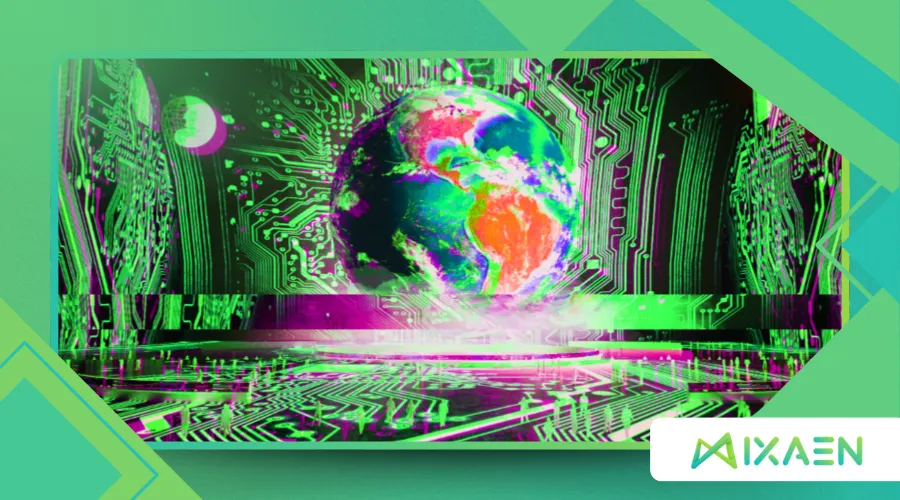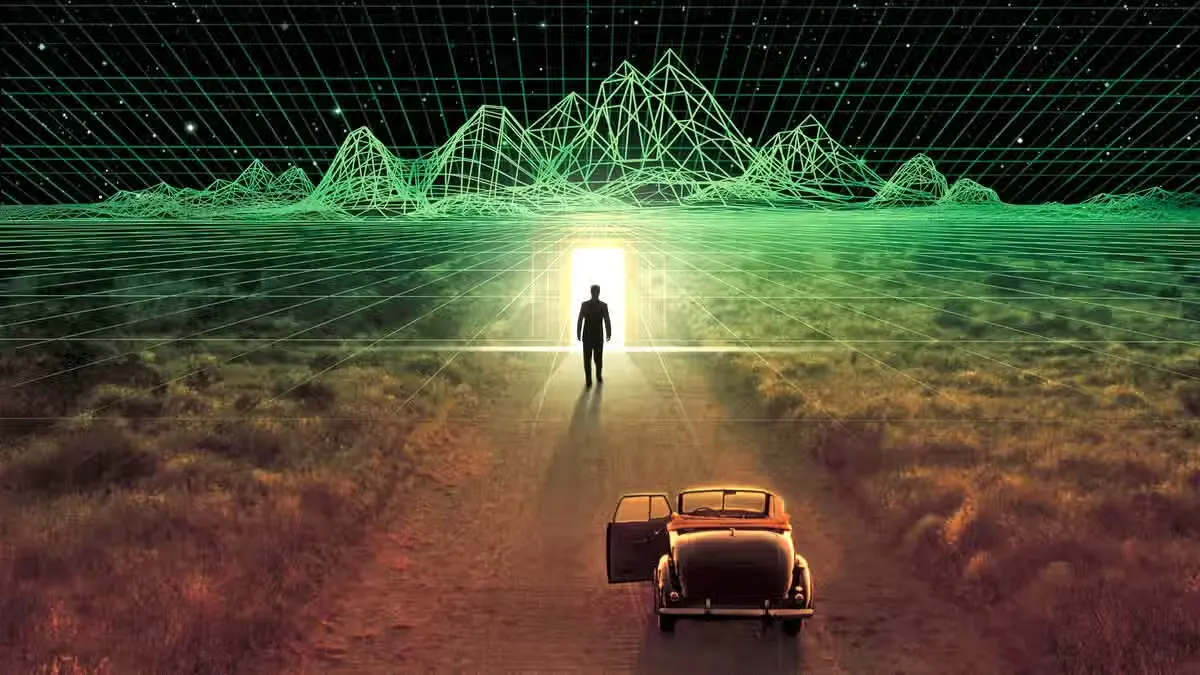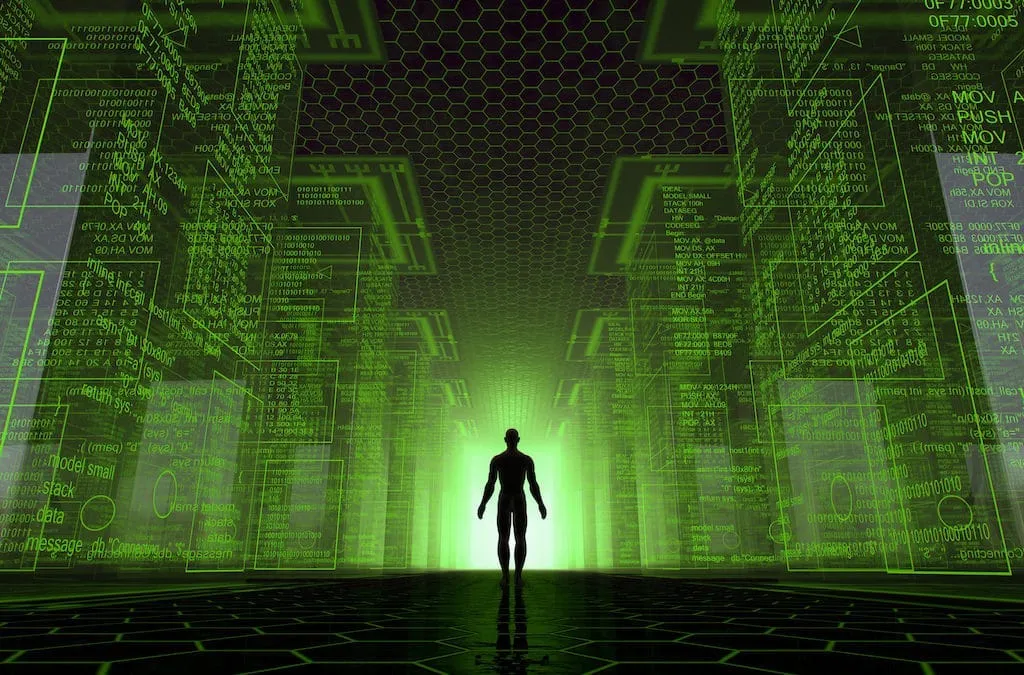The Simulation Hypothesis: Are We Living in a Computer Program?

The simulation hypothesis sparks a provocative question: what if reality, as we perceive it, is an intricate computer program, a digital construct designed by an advanced intelligence?
Anúncios
This idea, blending philosophy, technology, and metaphysics, has surged in popularity, captivating thinkers from Silicon Valley to academic halls.
It challenges our understanding of existence, urging us to reconsider the nature of consciousness, free will, and the universe itself.
In this exploration, we’ll dissect the hypothesis, weaving through its origins, implications, and the debates it ignites, while grounding our discussion in reason and contemporary insights.
Is reality a code we’re yet to crack? Let’s dive in.
Origins of a Mind-Bending Idea
The concept that we might inhabit a simulated reality isn’t new, though its modern form owes much to philosopher Nick Bostrom.
In his 2003 paper, Are You Living in a Computer Simulation?, Bostrom argued that at least one of three scenarios must be true: advanced civilizations never reach the technological capacity to create simulations, they choose not to, or we are almost certainly living in one.
His trilemma hinges on the exponential growth of computing power and the plausibility of creating simulations indistinguishable from base reality.
If a civilization can simulate countless realities, the odds tilt heavily toward us being in one of those simulations rather than the original.
Bostrom’s argument isn’t rooted in science fiction but in probability.
Consider this: if a single advanced civilization creates billions of simulated universes, each populated with conscious beings, the statistical likelihood of being in the “base” reality diminishes.
A 2020 study by astronomer David Kipping at Columbia University refined this logic, using Bayesian analysis to estimate a roughly 50% chance that we’re in a simulation, assuming advanced civilizations pursue such technology.
This statistic doesn’t prove the simulation hypothesis but underscores its plausibility, forcing us to grapple with its implications.
Interestingly, discussions about the simulation hypothesis have gained traction in popular media, influencing how we perceive technology and our existence.
The Technological Backbone
To understand the simulation hypothesis, we must consider the technological leaps that make it conceivable.
Computing power has doubled roughly every two years, following Moore’s Law, though recent decades show signs of slowing.
Still, quantum computing and artificial intelligence advancements suggest we’re inching closer to creating immersive virtual realities.
Imagine a future where neural interfaces, like those being developed by companies such as Neuralink, could feed sensory data directly to the brain, crafting worlds as vivid as our own.
Take, for example, a hypothetical game called Eden 2.0.
In this virtual world, players experience a medieval realm with smells of pine forests, the weight of armor, and the sting of a sword wound—all through neural implants.
If the simulation is seamless, could players distinguish it from reality?
Now scale this up: an entire universe, complete with physical laws and conscious beings, coded to perfection.
The simulation hypothesis posits that we might be characters in such a program, unaware of the code running beneath our feet.
The counterargument, however, is computational limits.
Simulating a universe requires astronomical resources.
Critics point out that even quantum computers might struggle to model every particle, interaction, and consciousness in a reality as complex as ours.
Yet, proponents counter with an analogy: a video game doesn’t render an entire world at once—it generates only what the player sees.
Similarly, a simulated universe might optimize resources, rendering reality only where observed, akin to a cosmic “lazy loading” system.
As we advance technologically, the lines between virtual and physical realities may continue to blur, raising profound questions about our existence.
+ Is Time an Illusion? Philosophical Views on Time
Philosophical Ripples
The simulation hypothesis doesn’t just challenge technology; it upends philosophy.
If we’re in a simulation, what does it mean to be human?
Descartes’ famous “I think, therefore I am” assumes a self-existing consciousness, but a simulated mind might question its autonomy.
Are our thoughts our own, or are they scripted by a programmer?
Free will becomes a thorny issue.
If our choices are coded, are we truly free, or are we puppets in a digital dance?
Consider a second example: a character named Lila in a futuristic simulation.
Lila believes she chooses her career, loves, and dreams, but her decisions are shaped by algorithms optimizing for narrative drama.
If Lila feels free, does it matter if her choices are predetermined?
This mirrors debates in philosophy about determinism versus free will, but the simulation hypothesis adds a layer: the programmer.
Unlike a deterministic universe governed by impersonal laws, a simulation implies intent, raising questions about the creator’s motives.
The hypothesis also intersects with metaphysics.
If reality is a simulation, what lies beyond?
Is the “base” reality physical, or could it be another simulation, like nested Russian dolls?
This recursive puzzle challenges our assumptions about existence, suggesting that “real” might be a relative term, not an absolute.
| Philosophical Concept | Implication in Simulation Hypothesis |
|---|---|
| Free Will | Choices may be coded, undermining autonomy. |
| Consciousness | Minds could be algorithms, not unique souls. |
| Reality | Base reality may be indistinguishable from simulation. |
The philosophical implications of the simulation hypothesis invite deeper inquiry into our understanding of reality and existence itself.

Scientific and Cultural Resonance
The simulation hypothesis resonates because it aligns with our technological trajectory.
Virtual reality headsets, like the Meta Quest or Apple Vision Pro, already blur the line between digital and physical.
Meanwhile, AI systems, such as those powering chatbots or generative art, mimic human creativity, hinting at a future where simulated consciousness feels real.
These advancements make the hypothesis less a thought experiment and more a plausible scenario.
Culturally, the idea has infiltrated popular imagination.
Films like The Matrix (1999) and Inception (2010) dramatize simulated realities, while video games like The Sims let players control virtual lives, mirroring the hypothesis’s core premise.
Tech luminaries like Elon Musk have amplified its visibility, with Musk famously stating there’s a “one in billions” chance we’re in base reality.
This blend of science, philosophy, and pop culture fuels the hypothesis’s allure, making it a lightning rod for debate.
Yet, skepticism persists.
Critics argue the hypothesis is unfalsifiable—how do you prove or disprove a simulation if it’s perfectly designed?
Scientists like physicist Sabine Hossenfelder emphasize that without testable predictions, the hypothesis remains speculative.
Others, like cognitive scientist Donald Hoffman, suggest our perception of reality is already a kind of interface, evolved to prioritize survival over truth, lending indirect support to the idea that reality might not be as “real” as we think.
To explore more about the intersection of technology and culture, check out Wired.

Ethical and Existential Questions
If we accept the simulation hypothesis, ethical dilemmas emerge.
Who controls the simulation?
A future human civilization, an alien ClauseAI, or an alien intelligence?
If the latter, what are their ethics?
A simulation implies a power imbalance—creators with godlike control over simulated beings.
This raises questions about responsibility.
If we’re simulated, are we owed transparency or rights by our creators?
Conversely, as we develop AI and virtual realities, are we ethically bound to consider the “rights” of future simulated beings?
On an existential level, the hypothesis can evoke both awe and unease.
It suggests our universe might have a purpose—a narrative or experiment designed by a higher intelligence.
Yet, it also risks nihilism: if life is a program, does it diminish our struggles, joys, or achievements?
Balancing these tensions requires a nuanced perspective, recognizing that meaning can persist even in a simulated framework, much like art retains value despite being crafted.
| Ethical Consideration | Potential Challenge |
|---|---|
| Creator Responsibility | Do programmers owe transparency to simulated beings? |
| Simulated Consciousness | Should AI or virtual entities have rights? |
| Purpose of Simulation | Is the simulation for entertainment, science, or another goal? |
The ethical dimensions of the simulation hypothesis challenge us to consider our responsibilities as creators and the implications for any beings we might simulate.
++ What Is the Multiverse Theory and Why It Matters Now More Than Ever?
Testing the Code of Reality
Can we test the simulation hypothesis?
Some propose looking for “glitches” in reality—phenomena that defy physical laws, like quantum entanglement’s “spooky action at a distance.”
Others suggest studying the universe’s computational limits.
If reality has a finite resolution, like pixels in a game, we might detect it through high-energy physics experiments.
However, these tests are speculative, and the hypothesis’s strength lies in its philosophical provocation, not definitive proof.
Engaging with the hypothesis requires intellectual courage.
It’s tempting to dismiss it as science fiction, but doing so ignores its logical rigor and cultural relevance.
Conversely, embracing it uncritically risks slipping into untestable speculation.
The middle path—treating it as a lens to explore consciousness, technology, and existence—offers the most value.
As we continue to explore the boundaries of science and philosophy, the simulation hypothesis serves as a profound tool for understanding our reality.
Why It Matters Today
In 2025, the simulation hypothesis feels more relevant than ever.
AI is advancing rapidly, with models like those from xAI pushing boundaries of what machines can do.
Virtual reality is becoming mainstream, and neural interfaces are no longer distant dreams.
These trends make the hypothesis a mirror for our ambitions and fears.
It asks us to consider not just whether we’re simulated, but how we’ll shape the simulations we create.
As we stand at this technological crossroads, the hypothesis isn’t just a thought experiment—it’s a call to reflect on our role as potential creators of new realities.
The simulation hypothesis, with its blend of logic, speculation, and existential weight, challenges us to question the fabric of our world.
Whether we’re in a cosmic program or not, the pursuit of understanding reality’s nature drives philosophy, science, and human curiosity forward.
So, what do you think—could the universe be a line of code, or is it something gloriously, messily real?
As we navigate this inquiry, we might uncover not just the nature of our existence, but also the essence of what it means to be human.
